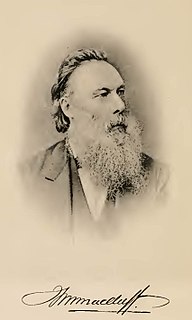A Quote by Charles Sanders Peirce
Truly, that reason upon which we plume ourselves, though it may answer for little things, yet for great decisions is hardly surer than a toss up.
Related Quotes
We find nothing easier than being wise, patient, superior. We drip with the oil of forbearance and sympathy, we are absurdly just, we forgive everything. For that very reason we ought to discipline ourselves a little; for that very reason we ought to cultivate a little emotion, a little emotional vice, from time to time. It may be hard for us; and among ourselves we may perhaps laugh at the appearance we thus present. But what of that! We no longer have any other mode of self-overcoming available to us: this is our asceticism, our penance.
Tulips come up in spring for no reason. Of course, you planted bulbs and now in April the earth warms up. But why? For no reason except gravity. Why gravity? For no reason. And why did you plant red tulip bulbs to begin with? For beauty, which is itself and has no reason. So the world is empty. Things rise and fall for no reason. And what a great opportunity that is! You can start writing again at any minute. Let go of all your failures and sit down and write something great. Or write something terrible and feel great about it.
A truly good book attracts very little favor to itself. It is so true that it teaches me better than to read it. I must soon lay it down and commence living on its hint. When I read an indifferent book, it seems the best thing I can do, but the inspiring volume hardly leaves me leisure to finish its latter pages. It is slipping out of my fingers while I read. It creates no atmosphere in which it may be perused, but one in which its teachings may be practiced. It confers on me such wealth that I lay it down with regret. What I began by reading I must finish by acting.
A little lifting up of the heart suffices; a little remembrance of God, an interior act of adoration, even though made on the march and with sword in hand, are prayers which, short though they may be, are nevertheless very pleasing to God, and far from making a soldier lose his courage on the most dangerous occasions, bolster it. Let him then think of God as much as possible so that he will gradually become accustomed to this little but holy exercise; no one will notice it and nothing is easier than to repeat often during the day these little acts of interior adoration.
Madness is consistent; which is more than can be said for poor reason. Whatever may be the ruling passion at the time continues equally so throughout the whole delirium, though it should last for life. Madmen are always constant in love; which no man in his senses ever was. Our passions and principles are steady in frenzy; but begin to shift and waver, as we return to reason.
There are studies that have shown that we make decisions, ethical and otherwise, based on the way we imagine ourselves as characters in the stories of our lives. In other words, if we imagine ourselves brave or crazy or open, we're more likely to make decisions in a given situation based on how we imagine ourselves, whatever the facts may be.
People are trying to build a society where they can talk across the aisle so to speak, and have civil discourse. At the same time we're trying to inform ourselves about what's really true so that we can make evidence based decisions that is better than superstition or rumor. But the fact is that people who use evidence based decision making have much better life outcomes, greater life satisfaction, they live longer, they make better personal and medical decisions, better financial decisions. But parallel to that is you can't reason somebody out of a position they didn't reason themselves into.
The Jews would not willingly tread upon the smallest piece of paper in their way, but took it up; for possibly, they say, the name of God may be on it. Though there was a little superstition in this, yet truly there is nothing but good religion in it, if we apply it to men. Trample not on any; there may be some work of grace there, that thou knowest not of. The name of God may be written upon that soul thou treadest on; it may be a soul that Christ thought so much of, as to give His precious blood for it; therefore despise it not.








































